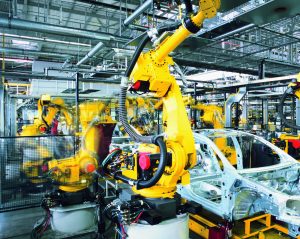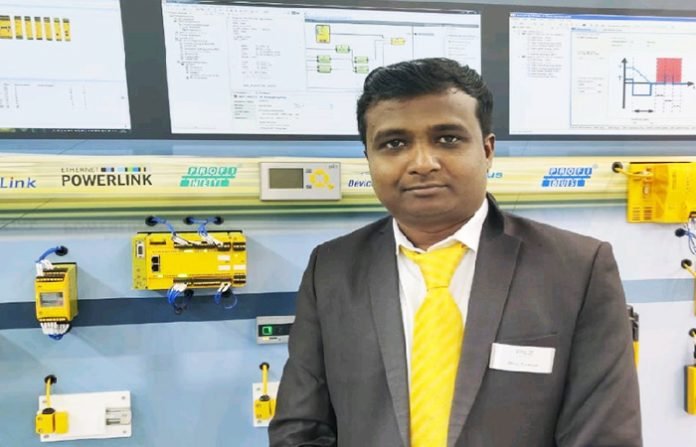As accidents and fatalities caused by machine-related incidents rise, organizations across the globe are focusing on protecting their assets and personnel. Compliance with government regulations, avoiding legal liabilities, and improving workplace safety, efficiency, and productivity are drivers for adopting various safety practices on machines and the factory floor. Additionally, the rise of technological advancements such as IIoT and digitization further drives the need for compliance, safety, and security on the shop floor.
With risk assessment, machine builders and factories take the first step toward making their machinery safe. However, without the right kind of engineering and implementation, the machinery will continue to have its limitations. It is essential to have safety designs in place along with proper implementation to overcome such limitations and have a safe shop floor.
Whether in the design phase, during operation, or with a machine retrofit: manufacturers and operators are naturally keen, and often legally obliged, to detect and eliminate potential safety risks for humans and machines. From seamless transitions to safety implementation to specialized solutions for complex industries, automation technology supplier Pilz India ensures that safety is prioritized without compromising productivity or incurring significant downtime.
Seamless transition to safety
During the transition to safety, it is essential to maintain factory productivity. There are ways to minimize production losses. Primarily, the process must continue while implementing design and safety changes in the machinery. If there are chances that the process would be interrupted, the factory operator should be informed. “At Pilz India, we ensure that safety implementations have minimal impact on the costs and productivity of your plant and machinery. Our certified safety consultants work in a precise, tested, and compliant methodology,” says Dhiraj Podutwar, manager, Projects, Pilz India.

After the risk assessment of a machinery or a plant; the consultant works with the machine builder or the factory operator to provide a detailed safety design. It is a three-step process to risk reduction. The first step focuses on overcoming the machine’s limitations by design change. If a simple design change cannot resolve the safety concerns, the consultant looks at changing or updating the engineering controls. Resorting to admin controls such as training, safety operating procedures, safe handling, and PPE in accordance with ISO 12100 norms is the last step, if the first two do not help in overcoming the machinery limits.
Various ISO standards must be considered while providing a safety design for implementation, which range from mechanical and electrical to devices. ISO 14120 includes information about the selection of guards and recommends the material used for the guarding. Additionally, ISO 13857 provides knowledge on the safety distances to prevent hazard zones from being reached. Interlocking guarding and its necessary design are provided by ISO 14119.
Safety implementation in specialized cranes
Recently, Pilz India executed a project for specialized crane equipment used in the aluminum industry. The aluminum industry deploys specialized cranes for converting raw aluminum to aluminum using the electrolysis process. All the conductive three to five-story areas of the cranes need to be insulated as the process sees a 10,000 kVA charge being passed through the melted aluminum. The insulated parts need to be continuously monitored for the safety of personnel on the floor and on the crane. Any mishaps would lead to fatalities and thus a safe shutdown is needed in case of any deviation. Moreover, the plant cannot be kept operational during the implementation of safety measures.
The challenges were far too many for a more straightforward implementation. A complete test lab was implemented in the plant for testing purposes and to avoid a plant shutdown. The safety implementation and testing were handled phase-wise, with 39 machines eventually transitioning to safe implementation using a Pilz PSS4000 controller. During these safety implementations, the aluminum factory operators benefitted from the knowledge and expertise of Pilz India. The factory operators trained all their employees who were handling automation and electrical installation. All these employees were certified as machinery safety experts (CMSE) by Pilz India. They received an internationally recognized certificate issued by TÜV NORD.
Safety for weld shops in the automotive industry
Automotive weld shops are a home for robots. Many welding shops have been operating for decades, and many have undergone incremental changes over time. Safety standards and regulations have also evolved. The task of retrofitting an existing running system into a safe implementation is no doubt challenging. Adding to the complexity is transitioning a centralized line into a decentralized line without affecting the running line. Moreover, the existing communication protocols on the line were obsolete.
While moving from a centralized architecture to a decentralized architecture, all the communication had to be modified. Pilz India was up for the complex challenge and delivered the pilot phase of the project without hampering the existing line. The project was successfully delivered with the desired safety performance level PL-d. The entire automotive weld line was transformed and validated from a centralized system to a decentralized architecture within no time by Pilz India. ‘Pascal’, a tool by Pilz, makes design, implementation, and validation possible. It can incorporate all the safety devices in the tool with datasheets with the user able to understand the safety level on the device level.
Machine safety lifecycle under one roof
“We are proud that with our innovative solutions and decades of expertise, we have globally established ourselves as a complete solution provider for safety and automation technology. We assist machine builders and factories with safety through the whole machine lifecycle with our services, which helps them to ensure their machines are safe,” says Dhiraj Podutwar. With the machine subjected to a lifecycle of risk assessment, safety concept, safety design, safety implementation, and safety validation, the builder ensures the implementation of appropriate measures as per applicable directives, laws, and standards.
With Pilz’s safety systems, businesses can rest assured that their personnel and operations are protected from potential hazards. Its team of more than 13 certified consultants includes two certified experts in CE marking (CECE) and two certified experts in functional safety (CEFS) with over a decade of hands-on experience on most complex machines.
With Pilz India’s International Qualification Programme IQP, machine builders can build up their knowledge gradually and continue training up to the required degree of qualification. A machine builder can undergo globally recognized training offered by Pilz India in collaboration with TÜV NORD. They can become a certified machinery safety expert (CMSE), a certified expert in CE marking (CECE), and a certified expert in functional safety (CEFS).









